IT’S ALL ABOUT ALJUNIED
As the Workers’ Party A-team addressed their ecstatic supporters from an upper floor of Deyi Secondary this afternoon, a nondescript sign below them read “LIGHTNING RISK ALERT”. It spoke more eloquently than the lightning-logo flags and placards wielded by hundreds of PAP supporters, of the storm brewing over Aljunied GRC.
You can bet that the ruling party will throw everything in its formidable arsenal at Low Thia Khiang and company. Equally, though, the raucous heckling that greeted every PAP candidate – even when Zainul Abidin Rasheed cheered “Majulah Singapura!” to try to shame WP supporters into gentlemanly conduct – suggests that the WP isn’t about to be intimidated.
Singapore has had hot GRCs before but Aljunied 2011 shoots off the temperature scale. This isn’t because the Opposition necessarily have a better chance here and now than in Eunos GRC in 1988 (when the PAP scraped through by 1.8 points).
No, this one is special because never before has a contest so perfectly embodied the fundamental, irreconcilable tension in Singapore’s electoral politics.
Set aside the roughly 25 percent of voters at each end of the political spectrum – the partisans who will vote for the PAP and the Opposition irrespective of who’s standing and who’s won the debates. Nationally, it’s the middle 50 percent or so that determines the fate of Parliamentary seats. In the case of Aljunied GRC, we could be looking at a swing vote of around just 10 percent. These are the voters who will decide if the PAP gets a winning 58 percent share or a losing 48 percent share on 7 May.
In the absence of polling data, these figures are of course nothing more than an exercise in gut-feelism. But what’s more significant than the precise size of the swing voter population are the forces that may sway them one way or another.
Swing voters, I think, consider the PAP to be the natural party of government right now, on account of having a larger team of able, experienced and trustworthy administrators and a more detailed plan for Singapore than the Opposition. They may also acknowledge that the PAP includes a handful of truly outstanding individuals, who they’re glad are on the Singapore team (though most Singaporeans would not praise them too loudly, lest the PAP grow up proud and complacent; we are all Amy Chuas that way).
At the same time, swing voters believe it’s sensible to have checks and balances on PAP power, and that an effective Opposition presence in Parliament will improve governance. They’ve also noted that, lately, the best heavyweights in the Opposition ranks are certainly superior to the worst lightweights on the PAP side and probably better than the average PAP candidate. Given a choice, they would pick the former at the expense of the latter – but that choice is usually not available.
In most other contests in this and previous GEs, the choice offered to swing voters made it easier for them to decide one way or another. Those inclined to vote for the Opposition could tell themselves that, well, the PAP guys weren’t particularly likeable, so they deserve to be taken down a notch. Those leaning towards the PAP could silence the Opposition voice in their heads by saying that the Opposition candidates weren’t impressive, even after giving allowance to their underdog status.
Aljunied 2011 removes these excuses. On the one side is a PAP team that’s hard to dislike. A veteran former journalist, Zainul Abidin, who is genuinely popular and is being mentioned as a future Speaker of Parliament. An intriguing new candidate and possible future PM, Ong Ye Kung, who has spent quality time at the NTUC and shows a determination to work for workers. And an anchor minister, George Yeo, who has distinguished himself as one of Singapore’s best ever foreign ministers. In the last GE, Yeo was the first Cabinet Minister to call a halt to the mudslinging against James Gomez, and in these polls he has continued to take the high road, denying snipers the pleasure of accusing him of gutter politics. Today, he called the WP A-team “worthy opponents”.
On the WP side, too, is a team that defies all the stereotypes. Fly-by-night opportunists who are dormant between elections? Low Thia Khiang is known as a hardworking grassroots MP. And his decision to leave his safe seat in Hougang for the fight of his life confirms yet again his steely idealism. Low calibre? In the early 1980s, Lee Kuan Yew likened the Opposition leaders to DC3 propeller planes while the PAP’s were Boeing 707 jets. But in Chen Show Mao, the WP have a Dreamliner whose specifications match any high-flier in the PAP fleet. It’s as if, like diligent children in paternalistic Singapore, Low’s WP has taken note of every criticism the PAP has levelled at the Opposition and has now come back with an answer for everything.
Swing voters in Aljunied GRC must now feel the heat of the critical decision before them. It boils down to this twin conundrum:
Do they prize the goal of a stronger, better Opposition enough to sacrifice a set of outstanding present and potential PAP office holders, whose absence from government would be missed by Singaporeans?
Or do they treasure quality governance sufficiently to reject the worthiest set of Opposition candidates to have ever been offered to the electorate and whose victory would boost democratic politics?
The choice between good government and a strong opposition has been a perennial one. But never before has it been posed as starkly as now, in Aljunied GRC.
From now until 5 May, Singaporeans know which rallies promise the most lightning, thunder and cliff-hanging suspense. But, for swing voters across the island who’d feel internally conflicted by the above conundrum, I wouldn’t be surprised if they came away thinking: Aljunied? Exciting place to visit, but I wouldn’t want to vote there.
* Apologies to those who commented on this blog post while it was hosted on Apple’s Mobile Me servers. Comments were lost when I belatedly transferred the content to a new host after Apple ended its Mobile Me service.
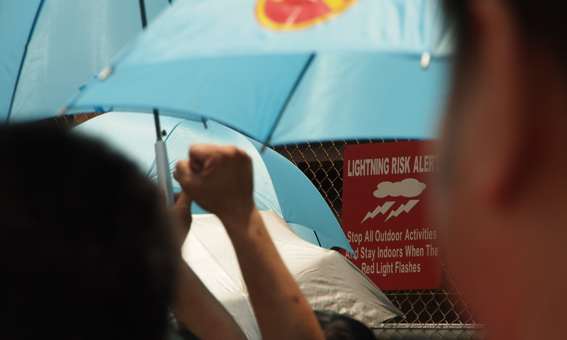

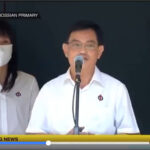

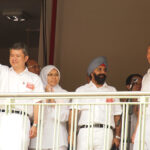
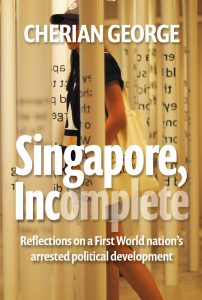
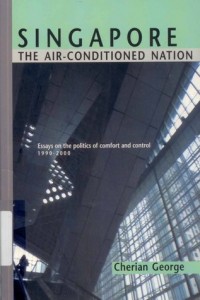
Comments are closed.